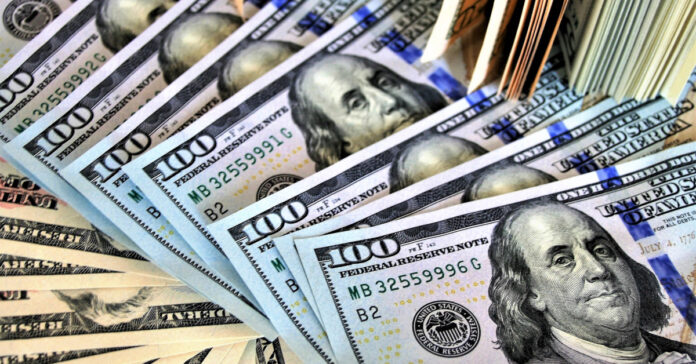
China has a problem. Chinese consumers have stopped paying their mortgages on homes and apartments that are incomplete and, they fear, may never be completed due to the Evergrande crisis. As a result, some real estate developers in China cannot make payments on their bank loans. Some banks are refusing to let their depositors withdraw cash. In at least one case, officials used tanks to break up a protest outside a bank.
This illustrates is how the interconnected world we live in can fall apart if one link in the financial chain is broken. Each link in the chain relies on the one before it. Cut that link, and there are no funds. No funds means default. In this case, consumers who feel ripped off threaten the social stability in China. The problem could balloon as more companies and more banks get sucked into the growing vortex, a downward spiral or doom loop.
Not Just in China
Here at home, AT&T’s share price plunged 11 percent, its largest fall in 20 years, because the company said consumers were putting off paying their phone bills and this would hurt cash flow. Why aren’t they paying their bills? Because they are spending all their money on food and gas.
If they are already unable to pay their phone bill, how long will it be before Americans have to choose between their house payment and their electric or heating bill? My guess is three to five months. That will depress property values as homes fall into arrears, homeowners look to make short sales, and eventually properties get foreclosed. In addition to harming the homeowner, who thought they had part of the American dream, this will hurt contractors, new home construction and contribute to making the recession worse.
Housing Collapse
The housing bubble has already popped. We are in that brief period of time when you see the action but you do not hear it because sound travels slower than light. We’ll hear about it soon enough. When government statistics, which always come out, we’ll see the damage caused by rising interest rates.
There will be fewer home sales, more unsold inventory on the market, fewer housing starts, and properties will sell far more slowly and at much lower prices than they did six months ago.
At the same time, more homeowners will fall in arrears on their mortgage payments. Banks will have the option of foreclosing or renegotiating, possibly by adding missed payments, penalties and interest to the loan. This could put many homeowners who bought near the peak of the market underwater. It buys time and spreads out the pain, but it doesn’t erase it.
The Broken Link
Over the past two years, we’ve seen how one missing part can stall production of tens of thousands of automobiles or a lack of packing can cause truckloads of food to spoil. We’ve seen how supply chain issues can cause lead times of months instead of days for equipment and parts. The shortages, outages, and other supply chain issues take place because it is a highly complex, integrated system that has little room for error. So, too, is our financial system. When one thing fails, it can bring down a Lehman Brothers, shocking the industry and sewing fear, uncertainty and doubt.
With the supply chain, we’ve seen how it takes time to restart production. The carefully balanced system chain must be re-started one link at a time or we have the bull whip effect and other disruptions. The problems in finance will be much the same.
One big difference between the supply chain and the financial chain is that the government and central banks play a much larger role in the financial side of things. They can be a great healer or a great disruptor. I think the current team is aiming for healing and inadvertently causing disruption.
Financial Prepping
I’m not a financial advisor, and I’m not going to tell you where or how to invest your money; instead, I’m going to suggest you make some preparations for things like a bank run, bank holidays, and greater inflation. Have some emergency cash on your person, just in case, and more emergency cash in a secure location at home. Pay off as much debt as you can and avoid running up new debt during this era of higher interest rates.
Inflation is pinching everyone. You need to realize it’s going to squeeze you and take actions to minimize the pain. Prepare for inflation to get worse, a housing collapse, and other financial surprises.








Always solid articles.
Comments are closed.